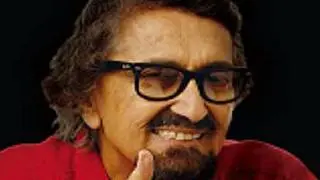Few people are as qualified to talk about power as the author of this book. Just the photographs in it suffice unto that. He is currently the Chairman of the Finance Commission. He was member of the IAS until he retired about 20 years ago, as were two of his sisters.
Another sister was married into a highly influential political family of Bihar. Her husband was in the police, as was that of another sister. Their father was in the ICS.
Mr Singh has served many governments in many capacities and had had a say in many important decisions. He has worked both in the Planning Commission and at the state planning board of Bihar. He has been a Rajya Sabha MP. The American saying ‘been there, done that’ is truly apt in his case.
His achievements in the exercise of power notwithstanding, Mr Singh is barely known outside New Delhi except in political and bureaucratic circles.
Mr Singh was, and is, the quintessential ‘go to’ man for governments, no matter what their politics. If something needed to be done, they often turned to Mr Singh, who would usually deliver because he knows how to.
It is for that reason — he is important but relatively unknown — that his memoir is a welcome addition to the rapidly growing pile of such books by former and current wielders of power in New Delhi. But sadly Mr Singh, consistent with his style has not revealed much.
The book is well written, which makes it easy to read and in a book for this genre that is a huge plus, never mind the procession of governments and their servants. It is also non-judgemental, adopting the approach that government decisions are contextual and it is pointless to criticise them with hindsight.
But he could, and should, have been more forthcoming. He owes that much to our future historians because he knows so much. It must be hoped that he will publish a second volume that expands on some of the major issues that Mr Singh was involved in and large problems that he helped solve.
A full innings
There was nothing very remarkable in his education but he came into his own after he joined the IAS in 1964. Barely were his training and first few postings over when he was appointed in the private office of two successive commerce ministers.
One was LN Mishra, subject of a major financial scandal. He was killed in a bomb blast in 1973. The other was DP Chattopadhyaya, who was a philosopher of some note.
Quite early on, when they were visiting London, Mishra introduced Mr Singh to a poorly educated clerk who had become very important because he was Indira Gandhi’s clerk. His name was RK Dhawan and he became hugely powerful in the 1970s and the first half of 1980s.
Mr Singh doesn’t say what this junior clerk was doing in London. He has, however, devoted six long and kind paragraphs to him.
He is less kind, however, to many others. His long description of Jairam Ramesh is a classic putdown, as is his two-sentence jab at P Chidambaram who, he says, was obstinate, which made him appear arrogant. There seems to have been some attitude on both sides.
It is also quite intriguing that unlike about Atal Behari Vajpayee, Mr Singh has almost nothing to say about Manmohan Singh as a person.
When Dr Singh joined the Commerce Ministry as the economic adviser in 1971, the author was the private secretary to the minister and controlled access to him. There are some incidents he narrates about Dr Singh but is careful not to prejudice the reader.
He is, however, very good to his various colleagues in the Finance Ministry and elsewhere.
The Modi years
Came 2014, and with it the BJP and Narendra Modi. Mr Singh thinks this was a good thing for the country. Not long after the new government was sworn in that he was appointed to head a committee to review the FRBM Act.
His description of how it worked is interesting but could have been fuller. Instead, he has written more words than are required talking about its members. This is a recurring weakness in the book, the need to thank instead of describe and educate posterity.
The next big appointment was as Chairman of the 15th Finance Commission.
The 14th FC had been headed by YV Reddy. The two men had been rivals ever since their days at Mussoorie as probationers in 1964.
Rivalry aside, everyone is now waiting to see whether Mr Singh will retain the recommendations of his predecessor or dilute them in some way so that the Centre doesn’t have to hand over so much money — 42 per cent of the net divisible pool of taxes — to the States. It is a very complicated matter and it will test his formidable problem skills to the utmost.
Meet the Author
NK Singh is a renowned politician and economist. He is presently the chairman of the Fifteenth Finance Commission of India.
( The reviewer is a senior journalist and commentator )







Comments
Comments have to be in English, and in full sentences. They cannot be abusive or personal. Please abide by our community guidelines for posting your comments.
We have migrated to a new commenting platform. If you are already a registered user of TheHindu Businessline and logged in, you may continue to engage with our articles. If you do not have an account please register and login to post comments. Users can access their older comments by logging into their accounts on Vuukle.